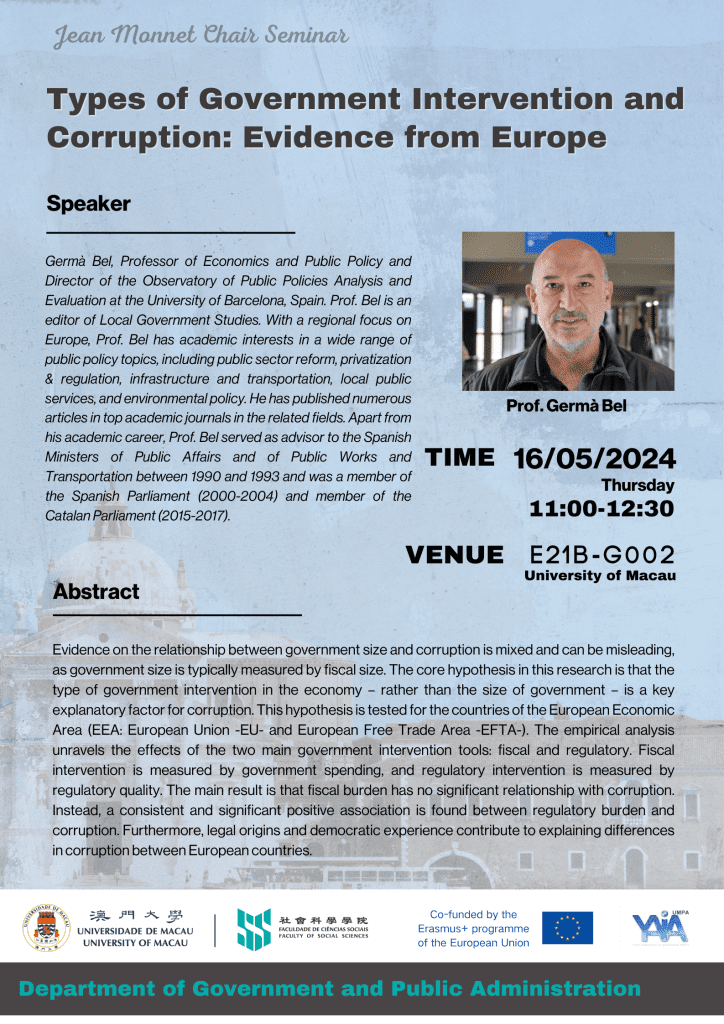FSS-DGPA seminar (Jean Monnet Seminar): ‘Types of Government Intervention and Corruption: Evidence from Europe’ by Prof. Germà BEL @ 16/05/2024; 11:00-12:30; E21B-G002
社會科學學院政府與行政學系講座 (讓莫內):Germà BEL 教授@ 16/05/2024; 11:00-12:30; E21B-G002

Dear all
You are cordially invited to join the following DGPA guest lecture. Thanks!
Details are as follows:
| Date: | 16/05/2024 |
| Time: | 11:00-12:30 |
| Venue: | E21B-G002 |
| Topic: | Types of Government Intervention and Corruption: Evidence from Europe |
|
Presenter: |
Prof. Germà BEL, Professor of Economics and Public Policy, University of Barcelona, Spain
Germà Bel, Professor of Economics and Public Policy and Director of the Observatory of Public Policies Analysis and Evaluation at the University of Barcelona, Spain, is an editor of Local Government Studies. With a regional focus on Europe, Prof. Bel has academic interests in a wide range of public policy topics, including public sector reform, privatization & regulation, infrastructure and transportation, local public services, and environmental policy. He has published numerous articles in top academic journals in the related fields. Apart from his academic career, Prof. Bel served as advisor to the Spanish Ministers of Public Affairs and of Public Works and Transportation between 1990 and 1993 and was a member of the Spanish Parliament (2000-2004) and member of the Catalan Parliament (2015-2017). |
| Language: | English |
| Abstract: | Evidence on the relationship between government size and corruption is mixed and can be misleading, as government size is typically measured by fiscal size. The core hypothesis in this research is that the type of government intervention in the economy – rather than the size of government – is a key explanatory factor for corruption. This hypothesis is tested for the countries of the European Economic Area (EEA: European Union -EU- and European Free Trade Area -EFTA-). The empirical analysis unravels the effects of the two main government intervention tools: fiscal and regulatory. Fiscal intervention is measured by government spending, and regulatory intervention is measured by regulatory quality. The main result is that fiscal burden has no significant relationship with corruption. Instead, a consistent and significant positive association is found between regulatory burden and corruption. Furthermore, legal origins and democratic experience contribute to explaining differences in corruption between European countries. |
Should you have any further inquiry, please feel free to contact us at fss.gpa@um.edu.mo
Department of Government and Public Administration
Faculty of Social Sciences
University of Macau
Tel: +853 8822-8301